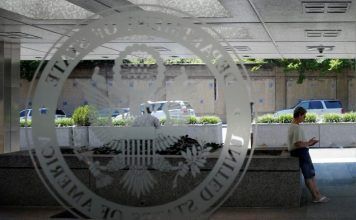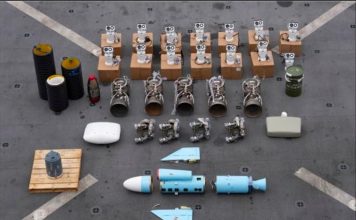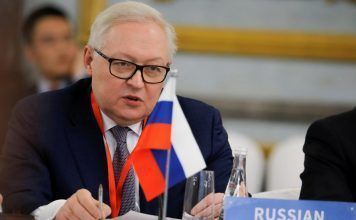By Ahmad Rafat
On Feb. 15, Swedish Foreign Minister Tobias Lennart Billstrom publicly denounced the Iranian government’s involvement in a plot to assassinate three Swedish Jewish citizens.
In a conversation with his Iranian counterpart, Hossein Amir-Abdollahian, Billstrom expressed the Swedish government’s strong condemnation of such actions.
During an interview with Swedish Radio (SR), Mr. Billstrom emphasized the gravity of the situation, stating, “It is, of course, something extremely negative that a country is pursuing murder plots in our territory.”
Foreign Minister Billstrom’s reaction has stirred controversy because it pertains to events in 2021. These events came to light only after the media uncovered an assassination plot that had been kept under wraps for an extended period, amid the apparent silence of both the Swedish security agencies and the Swedish government.
In April 2021, the Swedish Security Services made headlines when they arrested two individuals on the charge of planning to assassinate three Jewish citizens in the country.
The suspects, known by their real names as Mehdi Ramezani and Fereshteh Sanaifard, had entered Sweden in 2017 using fake identities as Afghan citizens and had successfully applied for political asylum, which was granted to them.
After ten months of investigation and legal proceedings, the two suspects were repatriated to the Islamic Republic without undergoing a trial in Sweden.
Mehdi Ramezani and Fereshteh Sanaifard, allegedly dispatched by the Islamic Revolutionary Guard Corps Qods Force (IRGC-QF), were reportedly tasked with conducting assassinations in Europe.
The United States sought their extradition in 2021 after learning of their alleged plans to conduct similar operations in countries beyond Sweden. However, Swedish authorities stated that they received the extradition request only after the two individuals had returned to Iran.
Some reports suggest that the Swedish Security Service expedited the deportation of Ramezani and Sanaifard to prevent their extradition to the U.S. and avert a potential escalation of tensions between Tehran and Stockholm.
The identities of the three Jewish Swedish citizens targeted by the two individuals behind a planned assassination plot in Sweden have not been officially released by the Swedish government.
Initially, the media reported Aron Verständig, the then-head of the Official Council of Swedish Jewish Communities, as one of the intended targets.
Following this revelation, Saskia Pantell, who served as the interim head of the “Zionist Federation” in Sweden in 2021, confirmed that she was also a target. Pantell has since moved to Israel because of security concerns in Sweden.
To this day, the identity of the third intended target remains undisclosed.
Iraj Mesdaghi, an Iranian researcher living in Stockholm, told Kayhan Life: “The Swedish government’s silence on the terrorist activities of the Islamic Republic and its hostage-taking is not an isolated incident.”
Mesdaghi played a pivotal role in the apprehension of Hamid Nouri, an associate of the current Iranian President Ibrahim Raisi, who was a member of a committee responsible for executing thousands of regime opponents without a trial under a direct order from Ruhollah Khomeini, the founder of the Islamic Republic.
Nouri was arrested at Stockholm airport in November 2021 on charges of “war crimes” and “mass executions.” Following his arrest, Nouri faced trial in a court in Stockholm, where he was ultimately handed a life sentence in May 2022.
ANALYSIS: Hamid Nouri’s Life Sentence Is A Condemnation of Iran
An appeal court later upheld the verdict on Dec. 19, 2023. Despite this decision, Nouri’s legal team has taken further action by requesting Sweden’s Supreme Court to review his case.
Mesdaghi told Kayhan Life that the cases of the two individuals and the arrest of an EU diplomat who is a Swedish citizen are not isolated incidents from the arrest of Hamid Nouri and his subsequent trial.
“Following Hamid Nouri’s arrest, the Swedish government chose not to escalate tensions with the Islamic Republic by prosecuting Mehdi Ramezani and Fereshteh Sanaifard. Instead, they opted to disregard the terrorist activities of the IRGC in Sweden,” Mesdaghi noted.
The diplomat Mesdaghi referred to, Johan Floderus, has been employed by the European External Action Service (EEAS) since 2021. The EEAS serves as the diplomatic service and a combined foreign and defense ministry for the European Union.
Mr. Floderus, aged 33, traveled to Iran in March 2022. However, his trip took a troubling turn when he was detained at the airport on April 17 of the same year, as he was preparing to depart from Iran.
Floderus’ trial began on Dec. 11, 2023, in Tehran, presided over by Judge Iman Afshari, who had previously sentenced four prisoners, Mohsen Mazloom, Vafa Azarbar, Pejman Fatihi, and Mohammad Faramarzi, to death. All four were executed on Jan. 29, 2024.
The prosecutor has accused Johan Floderus of “spreading corruption on earth” through “extensive actions against the national security” and “cooperation with Israel.” These are serious charges that could lead to a death sentence.
However, it is deemed unlikely that the Islamic Republic will issue a death sentence against a European diplomat like Johan Floderus.
Sweden Summons Iranian Chargé D’Affaires Over Detained Swedes
The Swedish government and EU officials kept Johan Floderus’ arrest confidential for 500 days. Only when Floderus’ family started a campaign for his release did the authorities confirm the diplomat’s arrest.
According to Iraj Mesdaghi, the Swedish officials defended their decision to remain silent about the arrest, arguing that the disclosure of Floderus’ detention would have exacerbated the delicate state of their relations with the Islamic Republic.
“The Islamic Republic believes it can engage in terrorist activities in Europe targeting people of Bahai faith with impunity,” Iraj Mesdaghi told Kayhan Life. “Tehran perceives Europe’s lack of strong response to these terrorist actions as a sign of weakness and the Islamic Republic’s strength, enabling it to continue its activities.”
According to Mesdaghi, the Islamic Republic has been implicated in several assassinations and terrorist attacks on European soil over the past four decades, including the high-profile killing of Shapur Bakhtiar, the last prime minister of Iran before the 1979 Revolution.
Bakhtiar was stabbed to death in his home in Paris, France, in 1991. Three men were later convicted of his murder, with evidence suggesting that they had been acting on behalf of the Iranian government.
Mesdaghi added that another notable assassination attributed to the Iranian regime was the killing of Shahriar Shafiq, the nephew of the last Shah of Iran, Mohammad Reza Pahlavi.
Shafiq was killed in 1979 while in exile in Paris. Although the exact circumstances of his death remain unclear, many believe that agents of the Iranian government assassinated him.
The Islamic Republic has also been linked to the assassinations of two Kurdish leaders in Europe, Mesdaghi noted.
Abdul Rahman Ghasemlou and Sadegh Sharafkandi, both general secretaries of the Democratic Party of Iranian Kurdistan (also known as the Kurdish Democratic Party of Iran), were killed in separate incidents in Vienna, Austria, in 1989 and 1992, respectively. In both cases, Iranian agents are believed to have been involved in the killings.
Mesdaghi argued that Tehran perceives European governments’ treatment of these cases as a green light to continue conducting assassinations in European countries. He believes that if individuals are arrested and detained, Tehran demands their release through hostage exchanges.
In May 2023, the Belgian government facilitated the exchange of Asadollah Asadi — a terrorist diplomat apprehended with explosives and sentenced to 20 years in prison by a Brussels court — for Olivier Vandecasteele, a Belgian aid worker unjustly sentenced to 40 years in an Iranian prison on false charges of espionage. This exchange was made only possible through the passing of a law by the Belgian parliament.
Mesdaghi is skeptical about the feasibility of Sweden exchanging Hamid Nouri with five citizens currently detained in Iran. The imprisonment of two Swedish nationals further complicates the situation, Simon Kasper Brown, and Stephen Kevin Gilbert, who were handed five- and eight-year prison sentences for drug-related offenses, adding more obstacles and complexities to the possibility of prisoner exchange between the two countries.
While on a work trip to Iran in April 2016, Ahmad Reza Djalali, a Swedish-Iranian doctor specializing in disaster medicine, was arrested and accused of spying for Israel. After a year and a half of detention and interrogation, during which Djalali maintained his innocence, he was sentenced to death in October 2017.
On Feb. 10, the Tehran Revolutionary Court sentenced Saeed Azizi, an Iranian-Swedish dual citizen, to five years of imprisonment on charges of “acting against national security.” Mr. Azizi was arrested during a visit to Iran on Nov. 12, 2023.
“According to Swedish laws, the exchange of prisoners is not permitted without the parliament’s approval,” Mesdaghi noted. “Only the parliament and not the king or the head of state can approve prisoner exchange.”
“It is doubtful that the Swedish parliament would pass such a proposal, given the number of lawmakers with dual Iranian-Swedish nationals in all political parties,” Mesdaghi added. “Therefore, Swedish authorities have overlooked the terrorist activities of the Islamic Republic on their soil because of these legal and political constraints.”













